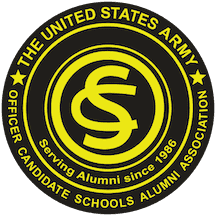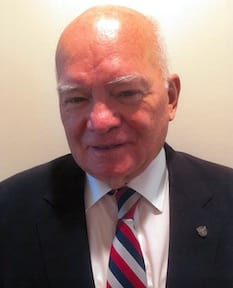Major William Michael Perkins
Description
Major Mike Perkins enlisted in the U.S. Army shortly after the Berlin Wall went up in 1961. After Infantry and parachute training he served with the 101st Airborne Division. Later he was transferred to Fort Bliss, Texas, for one year of radar and fire control maintenance training and served on the East German border with an anti-aircraft missile battery for a year. He was then sent to Officer Candidate School at Fort Benning and commissioned in 1964 and served with the 2nd Armored Division at Fort Hood, Texas, as mortar platoon leader until early 1966.
He completed Special Forces Officer training at Fort Bragg, North Carolina and arrived in Vietnam in July 1966. He served with the 5th Special Forces Group as executive officer on two Special Forces "A" Teams, one of which was at Khe Sanh on the border with Laos and North Vietnam. Here he was attached to Project Delta as a Ranger adviser. Later he commanded the Mike Force in Danang.
During his tenure with Special Forces he led over 50 dangerous missions and commanded not only U.S. personnel but also Australians and Vietnamese. After one year with Special Forces, he extended his duty for 6 months and was selected as operations officer of the first long range patrol company in Vietnam. He recruited the initial cadre of the company, established the training and operational standards and led the first operations of the unit along the Cambodian and Laotian borders. He completed all assigned missions under very trying circumstances.
In 1968 he returned to the U.S. for Advanced Infantry Officer training and graduated with the Physical Fitness Trophy and as one of the top students of the course.
He volunteered for Vietnam, and in 1969, was assigned to the 9th Infantry Division and U.S. Riverine Force as an Infantry company commander. Living on U.S. Navy ships plying the Mekong River, he led the company on six amphibious assaults and over 20 airmobile assaults. He was seriously wounded on his 6th night raid and medically evacuated to Japan and then to the US. Due to his astute planning and aggressive leadership, he never lost a man killed in any combat mission.
After hospitalization at Walter Reed Hospital he was assigned to the Pentagon as an adjutant in the support organization while an outpatient. When he received a full medical release, he was assigned to Germany as a commander of a parachute Infantry company in the 8th Infantry Division. Later he served with an armored battalion as the maintenance officer. In 1971 he volunteered for Vietnam and was assigned as Senior Advisor to a Vietnamese Ranger battalion on the Laotian border. When that battalion was overwhelmed by the North Vietnamese, he was assigned as a District Senior Adviser in Tuy Hoa Province. He was the only American to ever serve by himself in that position in Vietnam—because of his experience, rapport with the Vietnamese and language ability. His isolated district was 30 miles from the nearest friendly installation. His commander stated that he "was extremely mentally tough to have dealt with the difficult situations he faced."
When he returned to the U.S. in 1972, he completed his Bachelor's degree at the University of Utah, and in 1974, was assigned to the 1st Cavalry Division at Fort Hood. He commanded the Mechondo course, teaching young soldiers leadership and the basics of patrolling and raids. Later he served with the 7th Cavalry Regiment as a battalion operations officer and then as a division staff officer.
In 1977 he was assigned to South Korea as commander of the Special Forces Detachment. Here he advised seven Korean generals in special warfare operations. In 1978 he became commander of Camp Market at Inchon. In 1978 he returned to the U.S. and served with 5th Special Forces Group at Fort Bragg as battalion operations officer and later as Assistant G5 of XVIII Airborne Corps. He was deployed to Greece training the Greek Raiding Force during this time.
In 1981 he was assigned as Adviser of 19th Special Forces Group in Denver, Colorado and here he remained until his retirement in 1985. The Colorado National Guard honored him with the highest award of the state, the Meritorious Service Medal for his contributions in developing the leadership programs.
Major Perkins's qualifications include: Master Parachutist, Pathfinder, Ranger, Special Forces, Expert Pistol, Basic Missileman, Greek Parachutist, Vietnam Parachutist, South Korean Parachutist, Vietnam Ranger.
He has completed the Advanced Infantry Officer, U.S. Army Command and General Staff College, Psychological Operations Officer, Civil Affairs Officer, Special Forces Officer, Ranger, Pathfinder, Joint Air Operations, Communications Officer, Air Transportability, Counter Insurgency Operations, Hawk Missile Radar and Fire Control Maintenance.
His awards and decorations include the Silver Star, two Bronze Stars, Legion of Merit, several Purple Hearts, Air Medal, Meritorious Service Medal, Commendation Medal for Valor, Achievement Medal, Combat Infantryman Badge, Expert Infantryman Badge, Vietnam Service Medal w/7 campaign stars, Good Conduct Medal, Vietnamese Cross of Gallantry, Presidential Unit Citation, 8 Vietnamese Unit Cross of Gallantry ribbons and other service ribbons.
Major Perkins had an extremely successful, dedicated and well recognized commitment to the young people of our nation for more than 50 years. He has received almost every recognition possible and some that many Volunteer leaders in Scouting never began to approach. Recognitions include the Silver Antelope Award for exceptional service to youth on a regional basis, awarded in 2008; Silver Beaver Award for service at the local scout council level, awarded in 1983; and the Order of the Arrow (OA) National Distinguished Service Award in 2000. Other notable awards include: OA Vigil Honor, OA Founder's Award, Outstanding Eagle Scout Award and two Hornaday awards for exceptional service to conservation—the Gold Badge and the Gold Medal. Each of these takes a minimum of three years committed to conservation projects and improvement.

